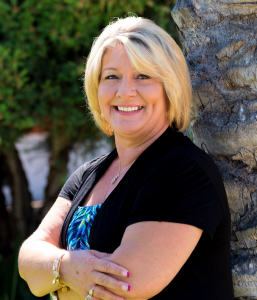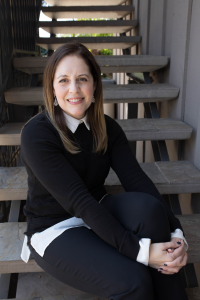
Matt Stranberg MS RDN LDN CSSD CSCS
What is your current position?
I am currently working as a dietitian, strength and conditioning coach and consultant, focusing on the intersection of nutrition, physical activity, and mental health. Although I work with a wide range of populations, most of my work involves addressing eating disorders, disordered eating, and problematic physical activity. My consultations typically involve helping athletes and non-athletes alike, translate the science of nutrition and exercise into pragmatic solutions to help improve relationships with food, exercise and ultimately build a life worth living! As of right now, I split my time between my consulting practice and the Walden GOALS Program.The GOALS program is a program that I helped create, specifically designed for competitive and recreational athletes who are struggling with eating disorders or disordered eating. To learn more about the work we do at GOALS, I would encourage you to read our most recent research publication.
How did you get started in your career?
Given the specificity of this niche, many people often assume that this was my life’s calling. My entrance into the field, however, was more so an idea that came to me during the inevitable existential crisis many students face upon completing graduate school. Towards the end of my dietetic internship training program at Brigham and Women’s hospital, I began to feel inspired.
During my experiences as a strength and conditioning coach, nutritionist, and counselor, I had always felt that nutrition, physical activity, and psychology were inherently intertwined. My experiences in the field, as well as my own personal struggles with disordered eating, eating disorder behaviors, compulsive exercise and body image issues, further reinforced these links. Although I was able to recover, during my time as a coach, I observed I was not alone. Many teams I worked for presented a multitude of similar problems related to mental health. Countless athletes I encountered were suffering in silence and had nowhere to turn for help. After reflecting on these experiences, I became determined to start working on solutions to solve this problem.
Based on my skills, research, and years working in the field, I was confident I could collaborate with other professionals to create a groundbreaking program that offered evidence-based treatment to an underserved population. The CEO and executive team at Walden Behavioral Care recognized and embraced this opportunity. With the help of my colleagues, we started the GOALS program. This ultimately started my journey to further developing my specialty position helping athletes and non-athletes alike heal their relationship with food, body image, and physical activity. Now that I have been in this line of work for over 5 years, I feel like this has become an actual life-calling. I never imagined working in a field that is so rich with learning, challenges and personal fulfillment while also making a great impact. I am excited to see how this field continues to evolve over time.
What advice do you have for someone new to the field?
First and foremost, I would strongly advise anyone entering the field to explore if this field is a good fit. This isn’t meant to discourage but rather encourage exploration to determine which field or section of a field best aligns with your overall needs, goals, style, and expectations. As someone who once worked outside the field, I conducted extensive research before treating eating disorders fulltime and even then, I was still floored by the stark contrast between what I heard and read versus my actual day to day. This is especially pertinent for differing levels of care, as each level of care on the continuum involves a variety of populations, settings, challenges, upsides, and downsides. A dietitian’s work treating eating disorders in outpatient will be radically different compared to inpatient and residential and so on. Additionally, although a lot of dietitians might think that working in the eating disorder field feels intuitively like a good fit, it is absolutely critical to understand if you are ready to counsel clients who struggle with eating disorders or problems related to body image and exercise. Traditional dietetic education does not adequately prepare students or dietitians to counsel this specialized population, which can pose a significant problem especially in relation to counseling effectives or transference and countertransference. In a counseling context, transference refers to “redirection of a patient’s feelings for a significant person to the therapist,” while countertransference is defined as “redirection of a therapist’s feelings toward a patient, or more generally, as a therapist’s emotional entanglement with a patient.” These phenomena are cornerstones to all therapeutic interactions and if the counselor espouses various beliefs regarding food, exercise, body shape and size or still struggles with these areas, it can interfere with therapeutic relationships or increase a chance of an anti-therapeutic relationship. For those interested in learning more, Dietitian Marci Evans, offers a quick, self-assessment. If the assessment determines this work might not be a good fit, please do not despair! It simply means, more work is required to enter the field, such as seeing a therapist to further explore these thoughts, feelings and beliefs. If you are motivated, Marci’s guide can help provide clues regarding areas to address before proceeding. This exploration also brings me to my next important point. It is monumentally important to establish networking and mentorship.
To best explore the field and adjust to the challenges present at every level, I would strongly recommend devoting time to networking and mentorship. Expanding and cultivating a network is essential for career success but will also increase chances of finding mentors. As previously discussed, traditional dietetic education is woefully insufficient for work with eating disorders, especially in relation to psychology and counseling challenging populations. Most trained professionals in the field of psychology and psychiatry agree that eating disorder patients are amongst some of the most challenging populations to treat and that is from the perspective of those who receive intensive psychological counseling training! Considering that most dietitians receive minimal training in these areas, it remains vital to address this deficit through self-study, mentorship, and additional training. Personal experience with eating disorders or a handful of counseling sessions is simply not sufficient. Finding mentors in the realm of dietetics and therapy, supplemented with self-study through reading peer reviewed research and professional therapeutic manuals will help you develop a general foundation before seeking further specialization. Counseling modalities such as motivational interviewing and the basics of psychodynamic therapy can help new clinicians develop a framework for counseling, while studying and incorporating therapies such as DBT, CBT, ACT and IFS can synergize with other therapist approaches or provide another layer of counseling depth. The latter however can take time to develop and frequently requires coaching and oversight. It should be known, that the knowledge and skills needed to be effective in this field will require ongoing practice and education, which only further stresses the emphasis on mentorship and continuing education. The silver lining with these seemingly daunting endeavors, is the immense reward derived from learning and engaging in incredibly fulfilling work.
Lastly, although there are possibly countless more tips I could advise, I will keep it simple and recommend another area that is crucial for success in the field but is rarely discussed; the need for boundaries and self-care. I am assuming that if you are interested in entering the field, you want to help others. This is great and one of the most critical components of your job. If your client or patient doesn’t feel that you care or want to help, there will be little chance of building trust and rapport. Without establishing trust and rapport, not much will change. Bringing your best self to your sessions and work is of the utmost importance. This doesn’t mean perfection, or that counselors don’t experience ups and downs in relation to counseling effectiveness. Counseling experiences and work performance will vary daily as, after all, we are all human. That being said, eating disorder work can be incredibly draining emotionally, physically and spiritually. It is incredibly meaningful to be someone’s support and witness during challenging times, and at the same time it requires considerable attention, energy and effort. If you are always pouring out your energy for others and rarely taking time to recharge and refill, you will increase your chances of burnout. When you first start, you might feel impervious and ready to take on the world, with endless optimistic energy. The reality of the work nonetheless is quite challenging and similar to intense exercise or study. All work and no rest will only result in decreased ability to perform, sickness or burnout. This will only negatively affect yourself and your ability to be effective or enjoy the work. Working with a therapist and mentor can help you develop an understanding of your energy levels, boundaries, provide room for processing difficult interactions and how to navigate the challenging work, life balance that typically challenges healthcare professionals. Although this might seem foreign for new dietitians, one of the major strengths of the eating disorder field includes a rich online community with listservs and resources to help providers connect. I am eternally grateful for these communities as I am unsure where I would be without them.
I could provide more tips beyond the ones mentioned above, but if you address these areas you will be off to a great start. If you have any further questions or concerns, feel free to reach out. I am always willing to help!
Learn more about Matt at:
Website: Mattstranbegconsulting.com
Research publications pertinent to topic: https://jandonline.org/article/S2212-2672(19)31025-1/abstract
Linkedin: https://www.linkedin.com/in/mattstranberg/
Facebook: https://www.facebook.com/groups/mattstranbergconsulting
Twitter: https://twitter.com/MattStranberg
Instagram: https://www.instagram.com/matt_stranberg_consulting/






